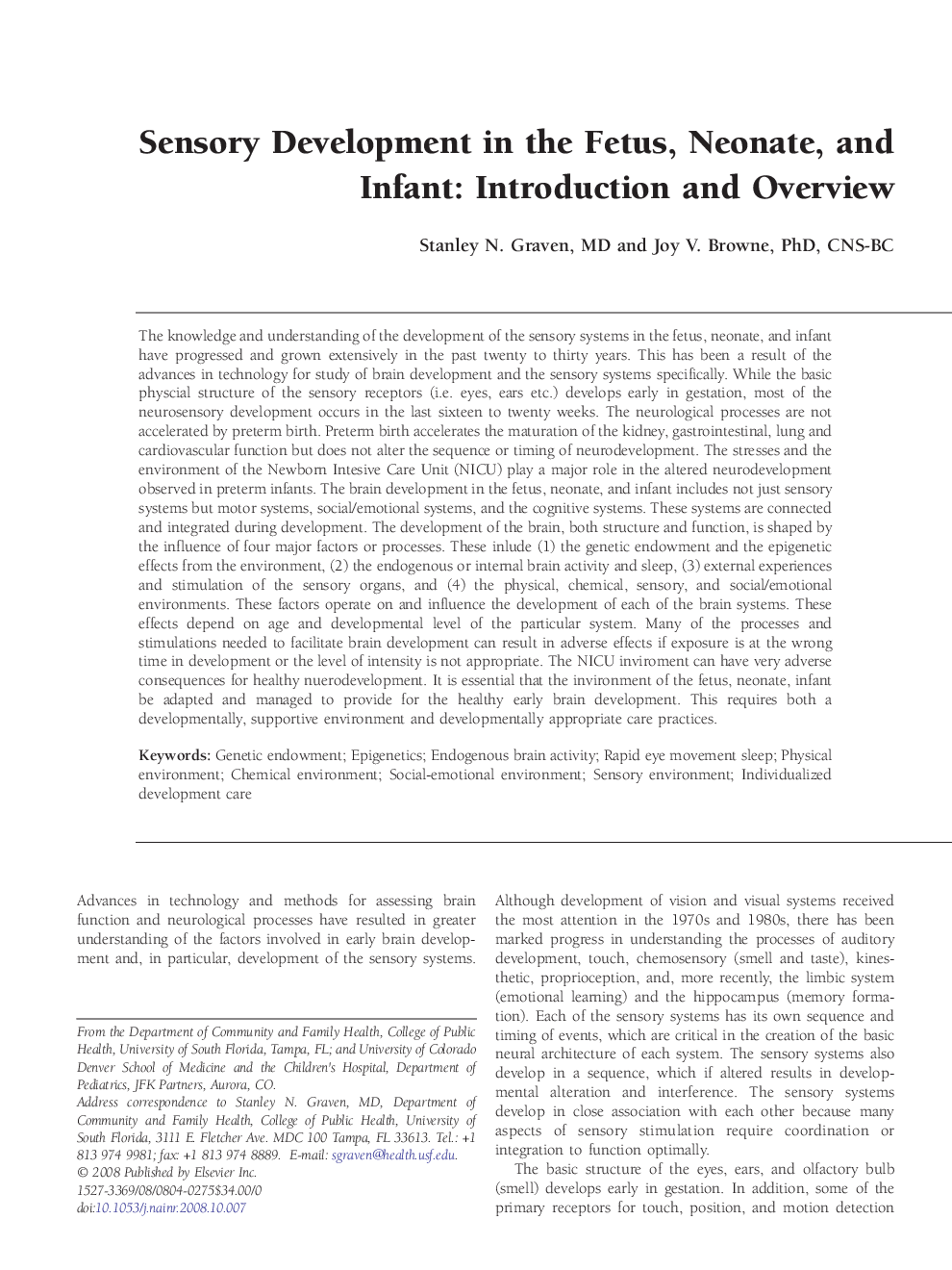| کد مقاله | کد نشریه | سال انتشار | مقاله انگلیسی | نسخه تمام متن |
|---|---|---|---|---|
| 2675915 | 1141822 | 2008 | 4 صفحه PDF | دانلود رایگان |

The knowledge and understanding of the development of the sensory systems in the fetus, neonate, and infant have progressed and grown extensively in the past twenty to thirty years. This has been a result of the advances in technology for study of brain development and the sensory systems specifically. While the basic physcial structure of the sensory receptors (i.e. eyes, ears etc.) develops early in gestation, most of the neurosensory development occurs in the last sixteen to twenty weeks. The neurological processes are not accelerated by preterm birth. Preterm birth accelerates the maturation of the kidney, gastrointestinal, lung and cardiovascular function but does not alter the sequence or timing of neurodevelopment. The stresses and the environment of the Newborn Intesive Care Unit (NICU) play a major role in the altered neurodevelopment observed in preterm infants. The brain development in the fetus, neonate, and infant includes not just sensory systems but motor systems, social/emotional systems, and the cognitive systems. These systems are connected and integrated during development. The development of the brain, both structure and function, is shaped by the influence of four major factors or processes. These inlude (1) the genetic endowment and the epigenetic effects from the environment, (2) the endogenous or internal brain activity and sleep, (3) external experiences and stimulation of the sensory organs, and (4) the physical, chemical, sensory, and social/emotional environments. These factors operate on and influence the development of each of the brain systems. These effects depend on age and developmental level of the particular system. Many of the processes and stimulations needed to facilitate brain development can result in adverse effects if exposure is at the wrong time in development or the level of intensity is not appropriate. The NICU inviroment can have very adverse consequences for healthy nuerodevelopment. It is essential that the invironment of the fetus, neonate, infant be adapted and managed to provide for the healthy early brain development. This requires both a developmentally, supportive environment and developmentally appropriate care practices.
Journal: Newborn and Infant Nursing Reviews - Volume 8, Issue 4, December 2008, Pages 169–172